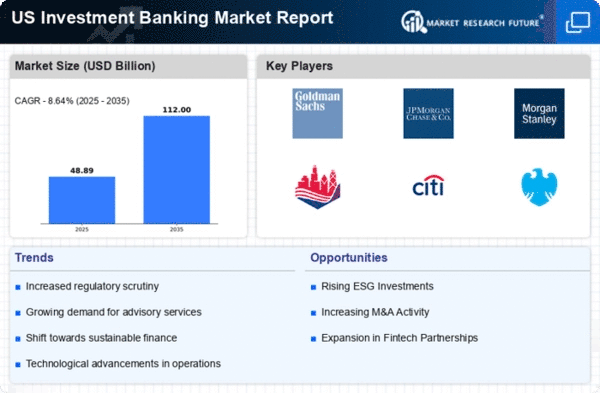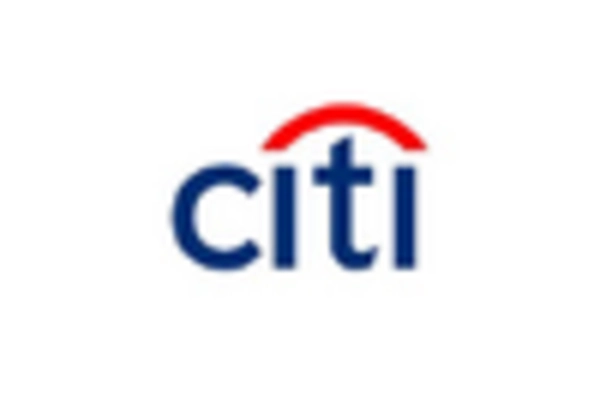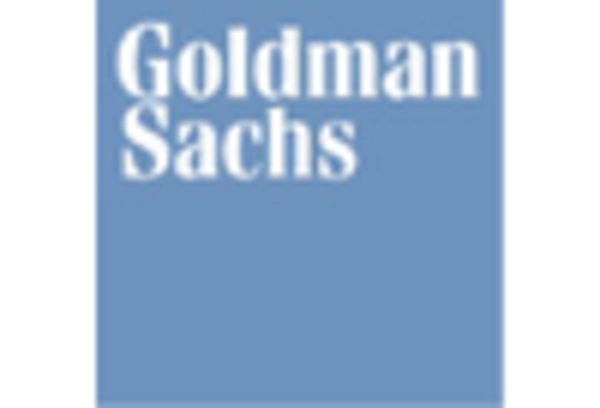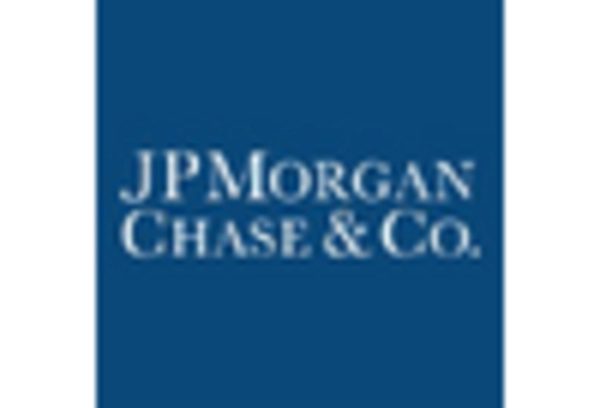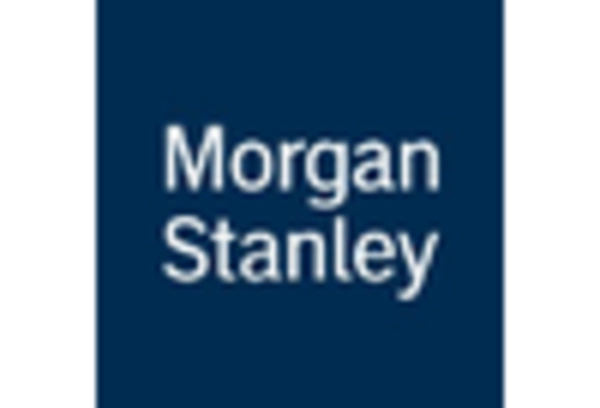The investment banking market in the US is characterized by intense competition and a rapidly evolving landscape, driven by factors such as technological advancements, regulatory changes, and shifting client demands. Major players like Goldman Sachs (US), JPMorgan Chase (US), and Morgan Stanley (US) are at the forefront, each adopting distinct strategies to maintain their competitive edge. Goldman Sachs (US) emphasizes innovation through digital transformation, focusing on enhancing client experiences and operational efficiencies. Meanwhile, JPMorgan Chase (US) leverages its extensive global network to pursue strategic partnerships and expand its service offerings, particularly in sustainable finance. Morgan Stanley (US) appears to prioritize wealth management and advisory services, reflecting a shift towards personalized financial solutions that cater to high-net-worth individuals.
The market structure is moderately concentrated, with a few dominant firms exerting considerable influence over market dynamics. Key business tactics include optimizing supply chains and localizing services to better meet client needs. The collective strategies of these major players shape a competitive environment where agility and responsiveness to market changes are paramount. As firms navigate this landscape, they are increasingly focused on integrating technology into their operations to enhance efficiency and client engagement.
In October 2025, Goldman Sachs (US) announced a strategic partnership with a leading fintech firm to develop advanced AI-driven analytics tools aimed at improving investment decision-making processes. This move underscores the bank's commitment to leveraging technology to enhance its service offerings and maintain a competitive advantage in a rapidly changing market. The integration of AI tools is likely to streamline operations and provide clients with more accurate insights, thereby reinforcing Goldman Sachs' position as a market leader.
In September 2025, JPMorgan Chase (US) launched a new sustainable investment fund, targeting environmentally conscious investors. This initiative aligns with the growing trend towards sustainability in finance and reflects the bank's strategic focus on meeting the evolving preferences of its client base. By positioning itself as a leader in sustainable finance, JPMorgan Chase (US) not only addresses client demands but also enhances its brand reputation in an increasingly competitive market.
In August 2025, Morgan Stanley (US) expanded its wealth management division by acquiring a boutique advisory firm specializing in tech startups. This acquisition is indicative of the bank's strategy to diversify its service offerings and tap into the burgeoning tech sector. By enhancing its capabilities in this area, Morgan Stanley (US) is likely to attract a new clientele, further solidifying its market position.
As of November 2025, the investment banking market is witnessing trends such as digitalization, sustainability, and the integration of AI technologies. Strategic alliances are becoming increasingly important, as firms collaborate to enhance their service offerings and operational efficiencies. The competitive landscape is shifting from traditional price-based competition to a focus on innovation, technology, and supply chain reliability. Looking ahead, firms that successfully differentiate themselves through these avenues are likely to thrive in an increasingly complex and competitive environment.


